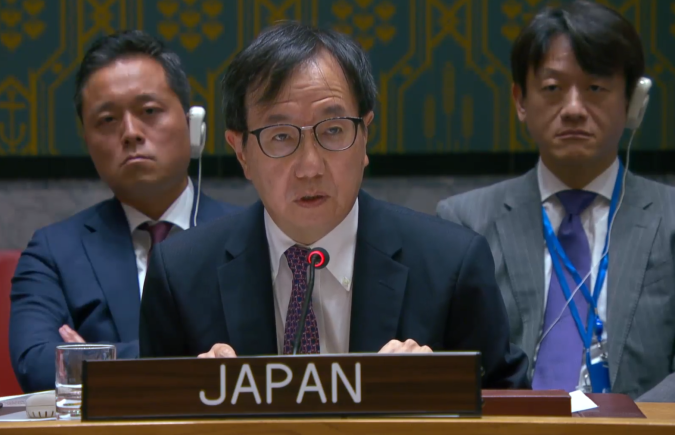多国間協力に関する安保理会合における山﨑大使ステートメント
令和6年7月16日

(As delivered)
No single country can single-handedly solve today’s various, complex global challenges that fellow council members already lined up. We need a collective multilateral response, and the UN must be at the heart of it.
Multilateralism functions only when Member States work together based on mutual trust and cooperation. Given the diverse views and positions of each country on various issues, what unites us is our shared collective commitment to the fundamental principles of international law, including the UN Charter.
It is a tragic irony and blatant hypocrisy that this debate is being organized under the presidency of Russia, focusing on how multilateralism should work better.
On one hand, in the concept note of this open debate, Russia emphasizes, for example:
- the importance of ensuring commitment to the purposes and principles of the UN Charter;
- the need to reestablish an atmosphere of trust and dialogue;
- concern about the increase and the escalation of the use of force and areas of conflict; and
- the need to ensure equal and indivisible security for all.
On the other hand, its aggression against Ukraine goes against all of the above, clearly breaching Ukraine’s sovereignty and territorial integrity, which are core values of international law. The unprovoked war of aggression against a sovereign state by a permanent member of the Security Council is outright defiance of the UN Charter, and Security Council resolutions, including those on North Korea, and constitutes a threat to global peace and security. The relentless use or threat of use of the veto that has accompanied this aggression has blocked the Council from making decisions and taking collective actions, paralyzing and discrediting the Council when the world needs it most to fulfill its responsibility.
How can Russia criticize others’ “selective” approach on applying international law and imposing “arbitrary” measures, while at the same time violating the very international law it says it is committed to whenever it wants?
Indeed, there is no country with a flawless historical record in its foreign policy – all of us should squarely face this reality and be humble about it. However, whatever blame Russia tries to put on others, it will never legitimize or distract the world’s attention from Russia’s unlawful conduct on the Ukrainian situation. As shown by the General Assembly resolutions related to Ukraine, the overwhelming majority of the membership understands who is to blame.
Russia must first and foremost withdraw all its troops and equipment from the territory of Ukraine within its internationally recognized borders immediately and unconditionally.
We strongly oppose any unilateral attempts to change the peacefully established status of territories by force or coercion anywhere in the world, and reaffirm that the acquisition of territory by force is prohibited by international law.
We need to strengthen the UN, which is the center of multilateral cooperation. In particular, we need an early reform of the Security Council to reflect current realities rather than those of 80 years ago. Increasing representation of unrepresented and under-represented regions is crucial. At the same time, Council membership is not a privilege but a solemn responsibility for the maintenance of international peace and security on behalf of the entire UN membership.
The Summit of the Future is an epoch-making opportunity to take stock of what we, the Member States, have discussed so far on Security Council reform, and to show to the world a way forward with a sense of urgency.
We have no doubt that the UN continues to be the largest, most legitimate, and most indispensable international body in which to discuss and decide the most critical issues of the world.
The future of the UN solely depends upon us.
We have much to do.
Let us do it legitimately.
I thank you.
